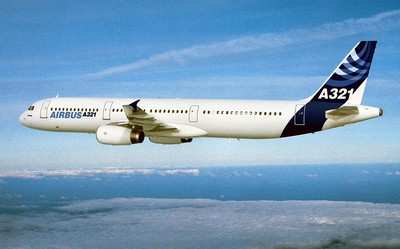Mon, May 07, 2018
System Limits Available Oxygen In Fuel Tanks To Comply With Fuel Tank Flammability Reduction Rule
The FAA has issued a STC to AerSale for installation of its AerSafe system on Airbus A321 aircraft (ST04010NY) in compliance with the Fuel Tank Flammability Reduction (FTFR) rule. EASA has also approved AerSafe on A321 aircraft (10065226) as a Flammability Reduction System (FRS).

This new STC is in addition to AerSale’s STCs for the Boeing 767 series (ST03599NY), approved by the FAA in February 2018, as well as the Boeing 737 CL series (ST03589NY) and the Boeing 737 NG series (ST02980NY), both approved in 2016.
“Obtaining approval from both the FAA and EASA shows AerSafe should be a key consideration for complying with the FTFR rule,” said Iso Nezaj, Chief Technical Officer at AerSale. “With AerSafe’s substantial cost savings and additional maintenance-friendly benefits, nitrogen inerting systems simply cannot compare. AerSafe is available in less than six weeks, installs in two days, has no mechanical parts to fail, and once installed, is maintenance-free. Airlines and operators faced with retrofitting a single aircraft or an entire fleet will realize significant benefits."
Tested and developed to exact tolerances to fill the cavity of the A321 center fuel tanks, AerSafe limits the amount of available oxygen that can ignite fuel vapors and prevents sparks from igniting an explosion. AerSafe comes as a complete prefabricated kit that can be installed at any hangar around the world. After initial installation, the system requires no maintenance or spare parts. A limited number of AerSafe kits are currently available for immediate installation. For larger orders, the lead time for ordering AerSafe is currently 60 days versus the one-year lead time for the nitrogen inerting system.
The FAA enacted the FTFR rule after the crash of TWA flight 800 off the coast of New York. Federal investigations revealed that the accident was the result of an explosion caused by a spark igniting fumes in the center fuel tank of the Boeing 747. The FTFR rule requires fuel tank ignition sources and flammability exposure to be reduced in aircraft most at risk. The FAA gave two options: a flammability reduction means such as nitrogen inerting, or an ignition mitigation means such as AerSafe. These systems must be installed on all passenger aircraft that have high flammability fuel tanks and fly within or into the United States.
(Source: AerSale news release. Image from file)
More News
After Draining Both Wing Fuel Tanks, A Significant Amount Of Water Was Observed In The Right Wing Fuel Tank Analysis: The pilot, who was also the owner of the experimental amateur->[...]
“Airbus apologises for any challenges and delays caused to passengers and airlines by this event. The Company thanks its customers, the authorities, its employees and all rel>[...]
High Speed Taxiway A long radius taxiway designed and provided with lighting or marking to define the path of aircraft, traveling at high speed (up to 60 knots), from the runway ce>[...]
Aero Linx: Taylorcraft Foundation, Inc. The Taylorcraft Foundation is exclusively organized for charitable, educational & scientific activities and will preserve the history an>[...]
Also: USAF Reaper Accident, Baikonur Damage, Horizon eVTOL IFR/FIKI, New Glenn Update Honda has outlined its clearest timeline yet for its entry into the world of electric vertical>[...]
 NTSB Final Report: Patriot Aircraft LLC CX1900A
NTSB Final Report: Patriot Aircraft LLC CX1900A Aero-News: Quote of the Day (12.06.25)
Aero-News: Quote of the Day (12.06.25) ANN's Daily Aero-Term (12.06.25): High Speed Taxiway
ANN's Daily Aero-Term (12.06.25): High Speed Taxiway ANN's Daily Aero-Linx (12.06.25)
ANN's Daily Aero-Linx (12.06.25) Airborne-NextGen 12.02.25: Honda eVTOL, Arctus High-Alt UAS, Samson Patent
Airborne-NextGen 12.02.25: Honda eVTOL, Arctus High-Alt UAS, Samson Patent



